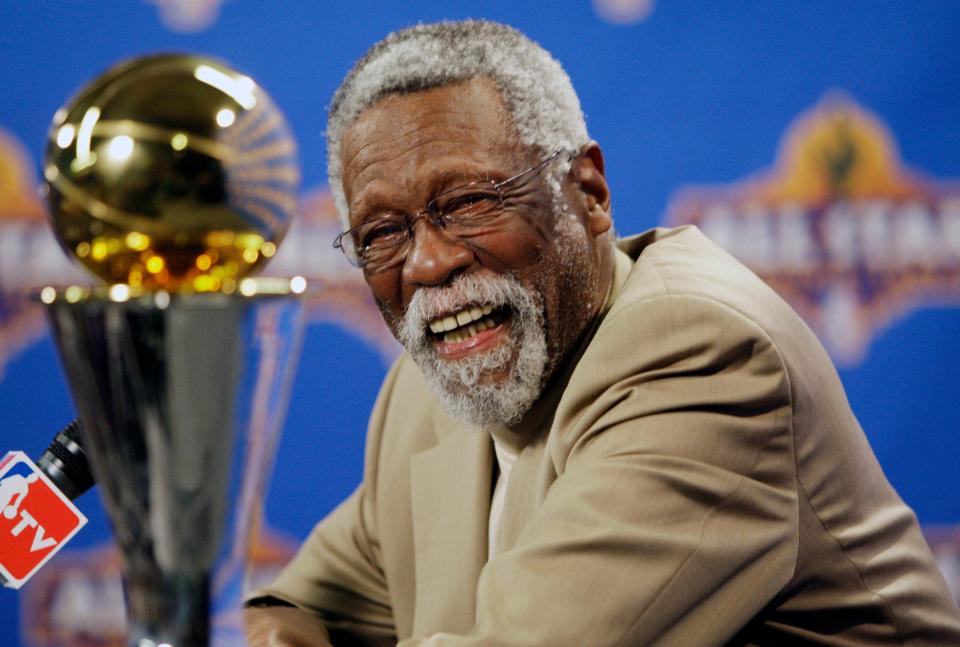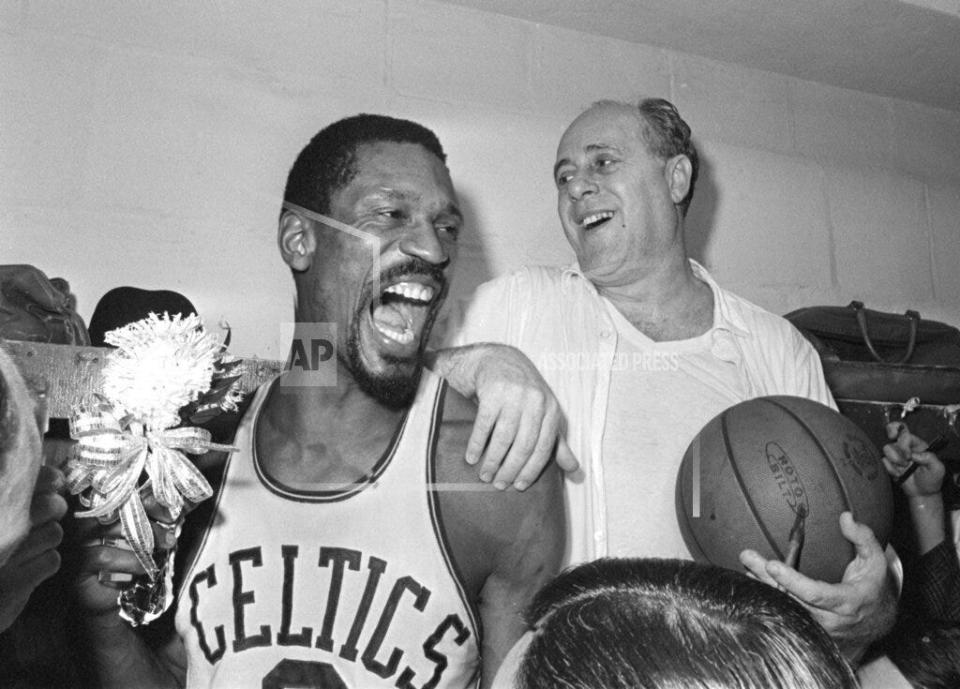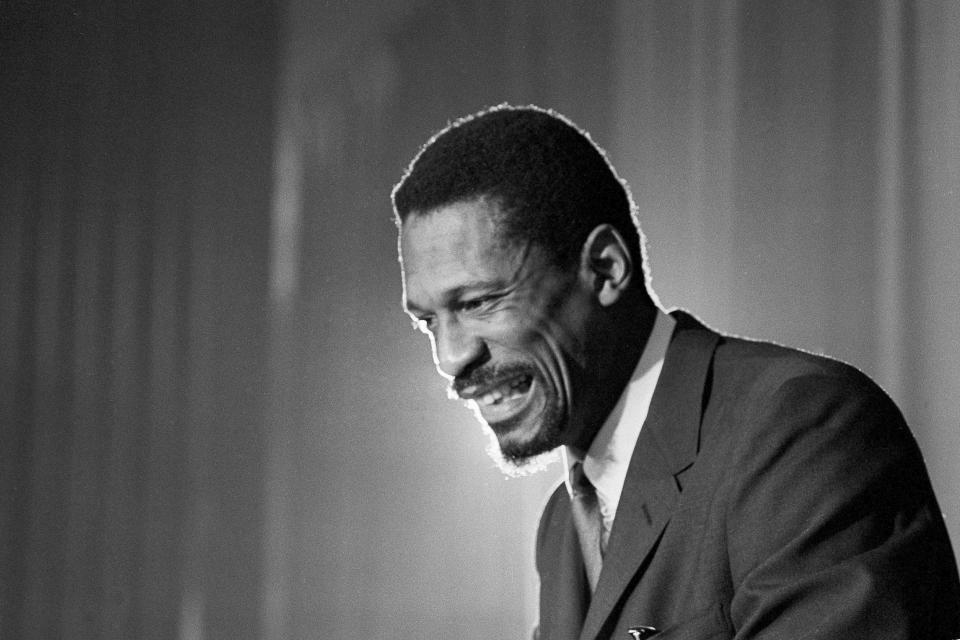SCANLON: Bill Russell was the most valuable player ever

To determine the greatest basketball player ever, you have to define greatness. It's not as simple as it used to be.
By the time Michael Jordan won his sixth NBA championship, you were considered hopelessly out-of-touch even to question Jordan's status as the greatest player of al-time.
But a few things have happened since then. LeBron James happened.
Social media happened. Basketball evolved. Rules and standards changed. The sport has become something different over time, for better and for worse.
People came and went. Leaves that are green turn to brown.
We haven't reached the "Who's-Michael-Jordan" stage yet but we'll get there.
And then Sunday, Bill Russell died at the age of 88.
Russell was never considered the greatest individual player by any conventional measurement, even in his day. Wilt Chamberlain and Oscar Robertson, among others, put up vastly superior statistics in every category except rebounding and shot blocking, and shot blocking wasn't even an official statistic until after Russell (and Chamberlain) retired.

But Russell was, and IS, the most valuable player in the history of basketball, and perhaps any sport. We have some numbers to measure that. In a period of 15 years (1955-1969), his teams won 14 championships — two NCAA titles at the University of San Francisco, 11 NBA championships with the Boston Celtics, and an Olympic gold medal in 1956. And here's my favorite: In winner-take-all games over the course of his college and pro careers, Russell's teams went 22-0.
Since we are hesitant to use the word "immortality" in the days after a death, let's leave it at this — the world is likely to spin many times before anyone matches Russell's record of ultimate success.
Russell practically invented the concept of defense in basketball. Before he introduced shot blocking and its psychology, defense was simply trying to keep your opponent away from the basket, hoping he turned the ball over or missed a jump shot, and then hoping your big guy beat the other team's big guy to the rebound.
Today, defense is the top priority of successful basketball coaches at every level. Defenses became so sophisticated and impenetrable that 3-point shooting was introduced in the early-'80s in order to stretch defenses out, to give shooters and drivers a chance. The revival of the long-range jump shot has led to a generation of Steph Currys, and now defenses have to deal with it.
All those evolutionary roads lead back to Russell.

To be sure, luck played a part in Russell's greatness. He was born at the right time, drafted under ideal circumstances by the visionary Red Auerbach just two years after the invention of the 24-second clock. He was placed immediately as the centerpiece of a roster that would become the sport's first dynasty.
Russell seemed to understand before any other player the importance of subjugating his ego and incorporating his skills within a team concept. He certainly understood it before Chamberlain, which enabled Russell to win so many of their playoff duels.
Such foresight also made him a natural as a coach, although Russell's success in that endeavor never translated beyond Boston. As a player-coach he won two championships in Boston, one in a memorable Game 7 in 1969 against Chamberlain in Russell's final game as a player. But those Celtics teams had the advantage of having Bill Russell at center, an advantage he did not enjoy in subsequent coaching attempts in Seattle and Sacramento.
By the time he showed up in Lakeland in 1988, on a scouting mission at the Orlando All-Star Classic as the general manager of the Kings, Russell had lost interest in the details of NBA management. He did some TV analysis, wrote some books, emerged as a civil rights spokesman and generally faded from view until the last few years. The NBA brought him somewhat reluctantly out of retirement by naming him to its all-time top-50 and top-75 teams, and most appropriately by naming the NBA Finals MVP trophy after him.

As for Bill Russell's place in history, there is this passage in "The Warmth of Other Suns," a great book by Isabel Wilkerson about the migration of six and a half million African-Americans from the South to other parts of America in the 20th century. The book barely touches on sports, but Russell — and his parents — managed to get onto its pages.
"There is no way to know what might have happened to Bill Russell had his parents not migrated (from Monroe, La., to San Francisco)," Wilkerson wrote. "What is known is that his family had few resources and that he would not have been allowed into any white college in Louisiana in the early 1950s, and thus would not have been in a position to be recruited by the NBA. The consequences of his absence from the game would now be unimaginable to followers of the sport."
This article originally appeared on The Ledger: Celtics legend Bill Russell was the most valuable player ever

